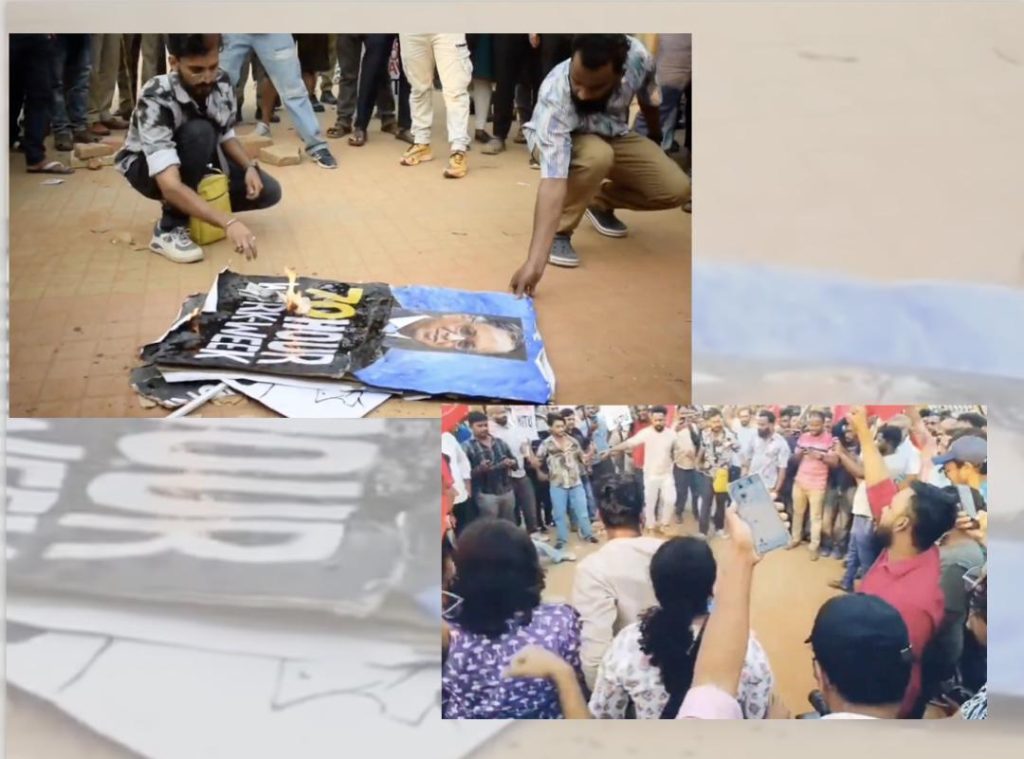
IT Employees Burn Murthy, L&T Chief’s Effigies for Proposing Longer Workweeks
In a bold protest against exploitative work practices, IT employees in Bengaluru burnt effigies of Infosys Founder Narayana Murthy and L&T Chairman SN Subrahmanyan. The protest, organized by the Karnataka IT Union (KITU), was a response to recent comments made by the two business leaders suggesting that employees should work longer hours.
Narayana Murthy, who is known for his strict work ethic, had earlier proposed a 70-hour workweek, sparking outrage among IT professionals. Subrahmanyan, too, had suggested that employees should be willing to work 90 hours a week to achieve success.
The comments were met with widespread criticism from the IT community, with many employees feeling that they were being asked to sacrifice their personal lives for the sake of their jobs. The proposal was seen as an attempt to squeeze more work out of employees without providing any additional compensation or benefits.
On Tuesday, a group of IT employees gathered at the Town Hall in Bengaluru to protest against the proposed longer workweeks. Despite efforts by the police to stop them, the protesters managed to burn effigies of Murthy and Subrahmanyan.
The protest was peaceful, with the protesters chanting slogans and holding placards. The police, however, attempted to disperse the crowd, but the protesters remained steadfast in their demands.
“We are not against hard work, but we are against being exploited,” said a protester. “We work long hours already, and we are not getting paid enough for it. We want our work-life balance to be respected.”
The protest has sparked a wider debate about the working conditions in the IT industry. Many employees feel that they are being asked to work long hours without any recognition or reward. The industry’s focus on growth and profit has led to a culture of overwork, with many employees feeling burnt out and exhausted.
The Karnataka IT Union (KITU) has been at the forefront of the protests, demanding better working conditions and improved compensation for IT employees. The union has also called for a 30-hour workweek, which it feels is more reasonable and sustainable.
The protest has gained widespread support from IT employees across the country. Many have taken to social media to express their solidarity with the protesters, using hashtags such as #JusticeForITEmployees and #FairPayForFairWork.
The incident has also sparked a debate about the role of business leaders in shaping the work culture. Murthy and Subrahmanyan’s comments have been seen as an attempt to impose their own work ethic on the rest of the industry, without considering the impact it may have on employees’ personal lives.
As the debate continues, one thing is clear: IT employees will not be silenced. They will continue to fight for their rights and demand better working conditions, fair pay, and a reasonable work-life balance.



